Digital civility: Ireland, the EU and the regulation of social media
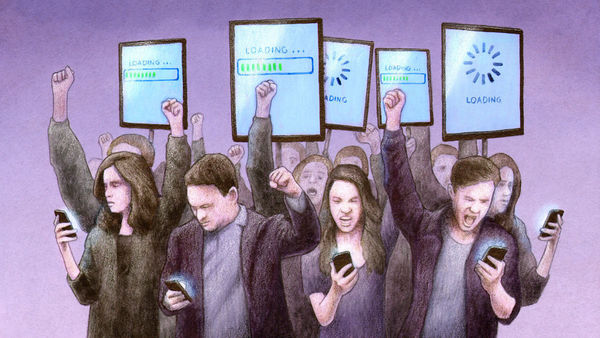
The attack on the U.S. Capitol on January 6 caught most people completely off guard, but a group of five undergraduate researchers at the University of Notre Dame had a more nuanced perspective on the event. They were halfway through a ten-week project on the topic of civility in discourse and social media. After weeks of reading and discussion about disinformation, public opinion, data tracking, populist movements, hate speech, censorship, governance, and the challenges of internet regulation, they immediately saw the attack on the U.S. Capitol through the lens of their research and understood how it underscored the significance of their work. “Up until that point we had not seen many concrete examples of social media’s impact,” says Brendan Copp, a senior majoring in sociology. “That event crystallized the connections between social media and democracy. I think we gained a heightened sense of purpose and importance as we digested the ramifications of what we were researching.”
Copp and fellow researchers Kyle Dorshorst, CJ Foronda, Celia Krohn, and Alexia Zolenski were participating in “Ireland in Europe,” a research program developed by the Dublin Global Gateway in partnership with European Movement Ireland and the Nanovic Institute for European Studies. The project took place during Notre Dame’s Winter Session, a special, somewhat-impromptu term that offered students scores of opportunities for research, study, service, and career development during this year’s extended winter break. Leadership at the Dublin Global Gateway knew that this Winter Session was an opportunity to be creative. “One thing we’ve always done with students over the years is to look at what Ireland can learn from America and what America can learn from Ireland,” says Eimear Clowry Delaney, assistant director at the Dublin Global Gateway. For the winter research program, she says, they wanted to have a broader focus, and invited students to apply to be a part of an interdisciplinary group researching Ireland’s role in the European Union.
For the five students selected, part of the appeal of the Ireland in Europe Winter Research Program was to immerse themselves in an international experience at a time when the coronavirus made studying abroad impossible. Each of them had plans that had fallen through due to the pandemic: Copp had planned to be in Dublin last summer; Zolenski, a junior majoring in biological sciences and history, was to be in London last fall; Dorshorst, a double major in political science and international economics with a concentration in French, and Krohn, a double major in financial economics and global affairs, both juniors, had also planned to study abroad this year. Instead, they were all back home for the winter session, Zooming into Dublin from Maryland, Wisconsin, Michigan, and Illinois for Friday sessions with the Global Gateway team and Monday meetings with each other.
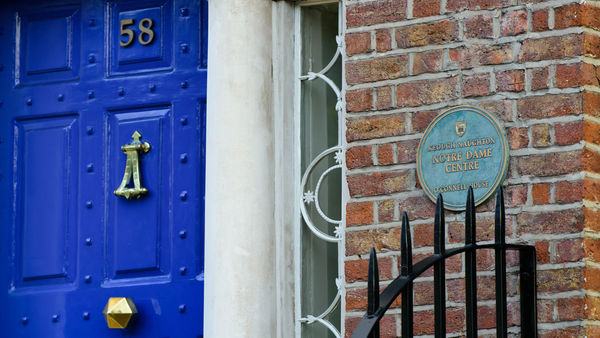
“The joy of this project was that our interns undertook it for the purest of intellectual reasons: they dedicated ten weeks of their winter break to focus intently on research that they believed would make a real difference in the world,” says Kevin Whelan, director of the Notre Dame Dublin Global Gateway. “By the end, they had experienced a genuine sense of discovery and gained a practical sense of what it would be like to be a doctoral student.”
The Global Gateway leaders specified the learning outcomes and final outputs of the program, as well as the research theme of “Civility in Discourse,” inspired by the 2020 Notre Dame Forum theme, “Election 2020: Think. Engage Respectfully. Vote.” But how the research team wanted to address that theme, Delaney says, was up to them.
“In our first discussions with each other we really honed in on social media,” Dorshorst says. “It was something that had a lot of relevance for our own lives, and so we had a degree of personal experiences we could use to approach the issue.”
Each student quickly found their own niche. Copp reported on European regulation of Big Tech; Dorshorst studied the French Gilets Jaunes (Yellow Vests) movement and how Facebook fueled and shaped its growth; Foronda looked at how social media, especially Twitter, served as a platform on the UK’s Brexit debate; Krohn examined how legitimate, civil discourse is being threatened as the increasingly autocratic EU member states of Hungary and Poland have constrained traditional media; and Zolenski reported on debate around the climate crisis in Europe—a matter that, she writes, “appears settled at the governmental level, [but] ambiguity lurks just beneath the surface.”
While at first glance their individual topics might seem unrelated, one important thread binds them together: these topics all have had an extensive online presence, and Ireland is the European headquarters for Big Tech companies Google (owner of YouTube), Facebook (owner of Instagram and WhatsApp), Apple, and Microsoft. (The social media platform Twitter, not officially part of Big Tech, also has its European headquarters in Ireland, and, as of this writing, TikTok is in the process of selecting a Dublin office space for its European office.)
Companies were initially attracted to Ireland for its low corporate tax rate and favorable business environment; in recent decades, a significant tech ecosystem has developed in Ireland, particularly in Dublin and Cork. This Ireland connection is key because, according to Copp, it means as the EU has rolled out internet laws to protect user data, combat disinformation, ensure online safety, and prevent market monopoly power, Ireland has borne the brunt of responsibility to enforce these laws, primarily through fines. In practice, he writes, Ireland has done very little enforcement because “[it] simply lacks the resources to investigate the companies with the most revenue in the history of the world.”
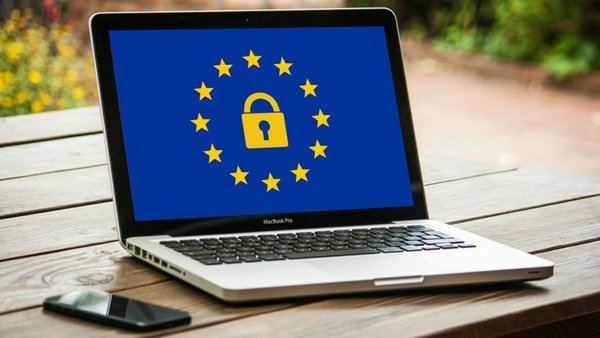
While the European Union has led the world in establishing internet regulation laws, including the GDPR (General Data Protection Act of 2016) and the DSA (Digital Services Act of 2020, addressing issues of disinformation and online safety), establishing laws is just the tip of the iceberg. Compliance is another matter. “Due to the severity of the problem that the DSA and GDPR are meant to address, not complying has serious consequences on civil discourse,” Copp writes.
The very recent DSA does address the problem of having one EU member state—Ireland—primarily responsible for enforcing these laws. Copp writes that the law “create(s) an enforcement branch that is EU-led, meaning no single state shoulders the regulatory burden alone. Even so, maximum penalties must be handed down or else the companies will be financially incentivized to continue breaking the law. While the DSA increases the maximum fine to 10% of global revenue, enforcement must improve or the laws are dead letters.”
Even with a new EU-led enforcement branch, the fact that Ireland remains the European headquarters for so many tech companies—Big Tech as well as smaller tech companies, including the most popular social media platforms—underscores the significant role Ireland plays for all 27 EU member countries, particularly in the conversations that play out on social media platforms. The ways in which Brexit, the Gillet Jaunes, threats to free expression by autocratic state leaders, and climate crisis debates play out on social media all connect to this broader challenge of internet regulation.
While Ireland is one thread that tied together the individual studies within this report, another is the sheer timeliness of the topics chosen by the researchers. So many of the situations were developing in real time as the team was working on their report. Both Foronda and Zolenski had to contend with the December 31 Brexit deadline; Dorshorst explained how the COVID-19 pandemic had upended French President Emmanuel Macron’s agenda in the wake of the Gilets Jaunes movement and the resultant Grand Débat National; Krohn followed how Hungarian Prime Minister Viktor Orbán responded to the banning of former U.S. President Donald Trump from social media accounts on January 8, and how the ban spurred the conservative, populist Law and Justice party (PiS) in Poland to introduce legislation to limit social media companies from removing certain posts.
“We tried to make our research as current as possible,” Zolenski says, “but at the same time, we also needed to make sure that each section made points that could apply no matter the current happenings in the world.”
Those applicable points come out in the report’s individual case studies as well as the final section on policy recommendations. “Social media has fundamentally transformed how we view privacy, how we gather information, and how we speak to one another,” the team writes in the conclusion, stressing the problems of disinformation, echo chambers, and us-versus-them mentalities that are catalyzed by social media and responsible for much of the toxic thinking and actions that challenge civil discourse and, by extension, democracy.
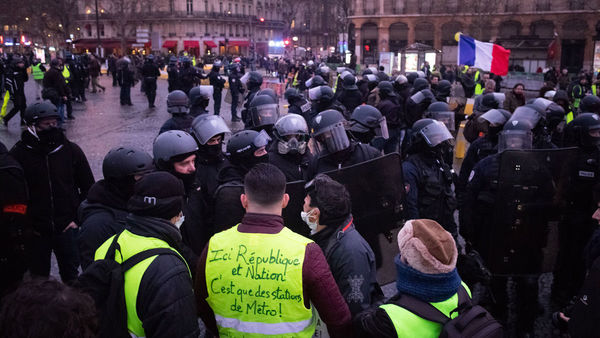
After completing their research, what steps does the team recommend to meet the challenges to civil discourse posed by social media? “We must improve privacy, transparency, and education, facilitate dialogues, and tackle disinformation while maintaining integrity in discourse,” they write in their conclusion, noting the urgency of the situation. The team provides a total of ten concrete policy recommendations within those five categories. While their recommendations are for Ireland and the EU, the researchers believe they are applicable elsewhere—including the U.S., particularly after the social-media-fueled Capitol attack in January.
“While our research was focused on Europe, there were definitely opportunities while writing the final draft to refer back to the American perspective,” Dorshorst says. In particular, he cites how, in his research on the populist Gilets Jaunes, he saw a social movement that expressed broad discontent within French society. “I could reference how certain elements of American society have significant grievances as well that lead them to organize on social media. These events really served to reinforce our belief that the project was highly relevant and could make a valuable contribution once published.”
Lisa Nic an Bhreithimh, head of communications and education for European Movement Ireland, the nonprofit organization that worked with the research team, also recognizes the importance of the report. “The group’s paper gives some really insightful analysis and recommendations that will be of great benefit to those researching, studying or developing policy in discourse, social media, politics and other areas,” says Nic an Bhreithimh, who shared with the team insights from EMI’s work in Ireland and from collaborations with colleagues across Europe. “Civility in discourse is hugely important to the work that EM Ireland does on ‘communicating Europe’ in Ireland, and civil discourse will be key in upcoming citizen engagement as part of the Conference on the Future of Europe,” she says, citing the conference being organized by the European Parliament, the EU Council, and the European Commission.
The report is being prepared for publication later this summer, and there is hope that a policy brief based on its recommendations will ultimately reach policymakers. Whatever the outcome, the process of developing policy recommendations has been a significant learning experience for the students. “Now more than ever it is crucial that emerging American leaders are knowledgeable about Europe, and this project allowed highly capable young people to dig deep into Europe and discover a huge amount about the U.S. by comparison,” says Whelan.
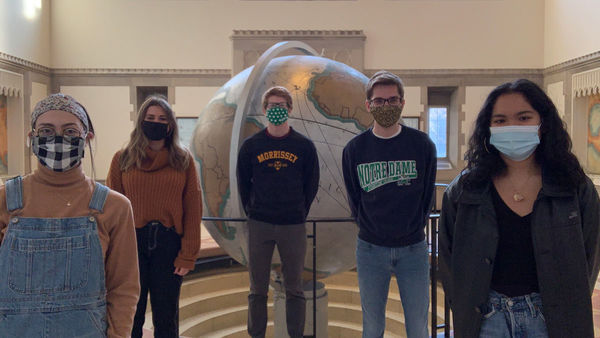
As for those student researchers, they finally met in person in February, after ten weeks of working together remotely. Although they didn’t get to physically travel to Europe for their research, they are grateful nonetheless for the opportunity to work with the Dublin Global Gateway team. They also acknowledge the assistance of EMI and the Nanovic Institute, which provided grant funding to purchase academic journals and other materials for their research.
Because of the project, Krohn says, “I now consider myself a more aware and knowledgeable consumer of both traditional media and social media”—an awareness and knowledge that, she says, is increasingly important. Dorshorst, who will be writing his senior thesis next year, says he is glad for the opportunity to gain general research experience as well as the opportunity to delve into the kinds of topics he may want to explore further in his own future work. And for Zolenski, this project underscored the importance of working hard, both independently and as part of a team, to produce the best possible product. “I learned a lot about the importance of being open to criticism,” Zolenski says, modeling one of the very aspirations of the report. “Personally, I gained a lot of perspective; being able to think and communicate about such a difficult, multifaceted topic is incredibly important. The future, it seems, truly depends on our ability to establish ‘Civility in Discourse.’”
Originally published by at nanovic.nd.edu on May 06, 2021.